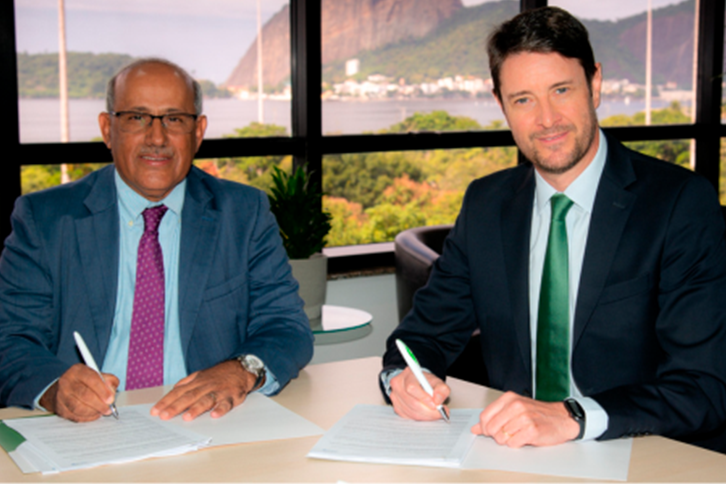News
2023-05-16 14:33:00.0Neoenergia and UNICEF join forces to support public education networks and strengthen curricula focused on climate change, energy efficiency and waste reuse
- Neoenergia will invest R$4.5 million to strenghten the implementation of the UNICEF initiative, which will benefit 120,000 students in three Northeastern states and the Federal District
Neoenergia signed on Friday (12) a partnership with the United Nations Children's Fund (UNICEF) to support education and environmental actions in public schools in Bahia, Pernambuco, Rio Grande do Norte and the Federal District. The company will donate to the Fund about R$ 4.5 million, through the Energy Efficiency Program, regulated by the National Electric Energy Agency (Aneel). The initiative, focused on learning about climate change, energy efficiency and waste reuse, will promote the training of four thousand teachers and benefit about 120 thousand students, in 500 teaching units of the regions involved.
The partnership lasts for three years. Throughout this period, pedagogical materials and continuing education strategies for teachers of Early Childhood Education and Elementary Education will be developed; systematization activities and sharing of good practices. The project focuses on the socio-environmental agenda and is aligned with the National Common Curricular Base (BNCC) for issues related to climate change, energy efficiency and waste reuse.
The activities contribute to the achievement of the goals set by Sustainable Development Goal 13 (SDG 13), on taking urgent action to combat climate change and its impacts.
The signing of the partnership was held at Neoenergia's headquarters in Rio de Janeiro. For the company, the CEO Eduardo Capelastegui was present; the Vice President of Regulation, Institutional and Sustainability, Solange Ribeiro; the director of Institutional and Government Relations, João Paulo Neves Baptista Rodrigues; and the Superintendent of Energy Efficiency, Ana Mascarenhas. Youssouf Abdel-Jelil, represented UNICEF in Brazil.
"We believe that educational initiatives help raise awareness in society about the importance of efficient energy use and climate change. We are committed to improving people's quality of life while contributing to the sustainable development of the planet. The partnership with UNICEF allows us to reach these young people, raising awareness about this process and creating sustainable alternatives that can be replicated in the communities where they live," said Eduardo Capelastegui, CEO of Neoenergia.
"Educating children, adolescents and young people for the 21st century necessarily involves talking about climate change. As a society, we have to rethink school and have concrete curricula and learnings on how to change and preserve the planet for this and the coming decades and generations. That's why we're happy with this partnership," says Mônica Dias Pinto, UNICEF's head of education in Brazil.
Partnership
The partnership between Neoenergia and UNICEF has existed since 2014 through investments in projects. Between 2014 and 2016, the company donated R$ 1 million to develop actions in the areas of operation of Neoenergia Coelba (BA), Neoenergia Cosern (RN) and Neoenergia Pernambuco (PE). There were 375 municipalities benefited through the formation of 1,767 multipliers of the concepts of sustainable, efficient and safe use of electricity.
In 2015, UNICEF held for 50 days the exhibition "Ilumanity: light for every life, light for every life", which was visited by 10,433 people in four Brazilian capitals: Salvador, Recife, Natal and Rio de Janeiro. The three distributors in the Northeast donated R$ 397 thousand reais for the execution of the project. Another exhibition, "Life at Stake," portrayed in 2016 the difficulty of students to get to school in the semi-arid. Neoenergia Coelba and Neoenergia Pernambuco made a joint donation of R$ 284 thousand.
Between 2017 and 2022, a total of R$ 7.7 million were collected in the energy bills, which supported projects in 15 municipalities in Pernambuco, involving 385 schools with the training of 3,495 professionals and 70 thousand students benefited, in improving the quality of basic education.







